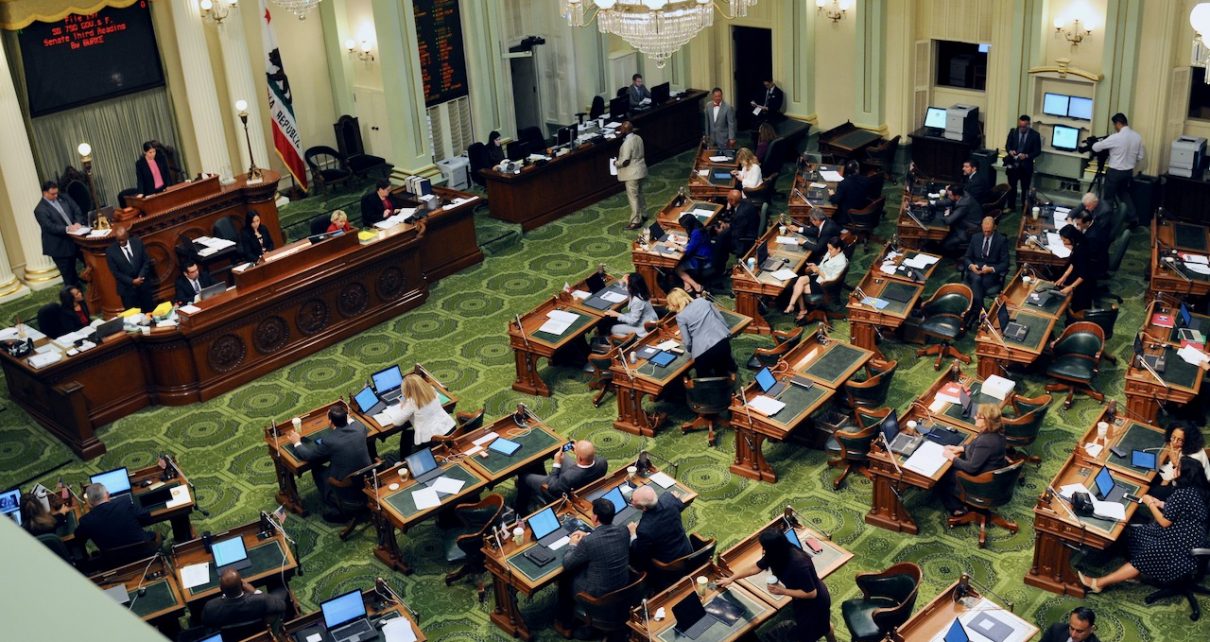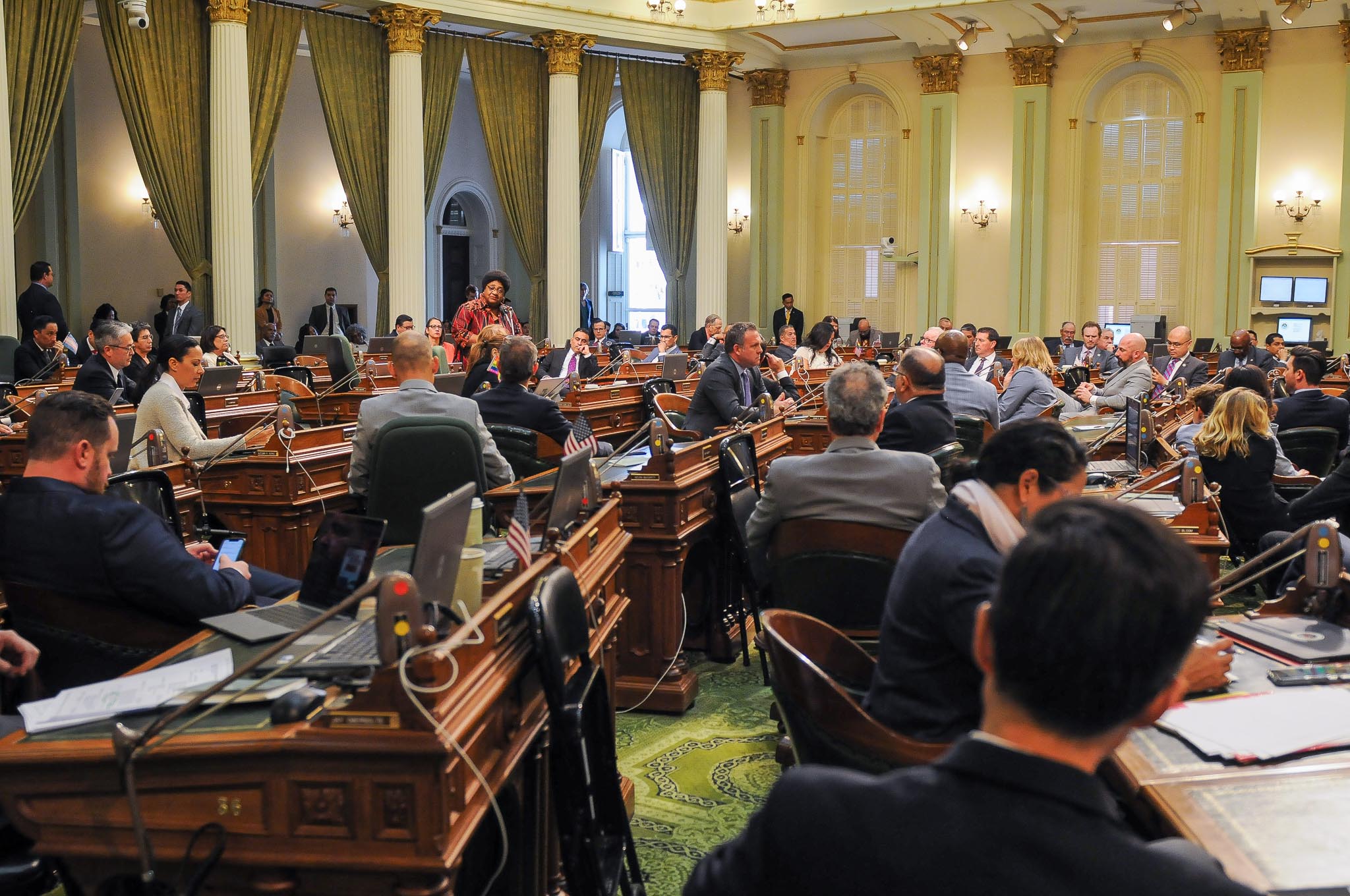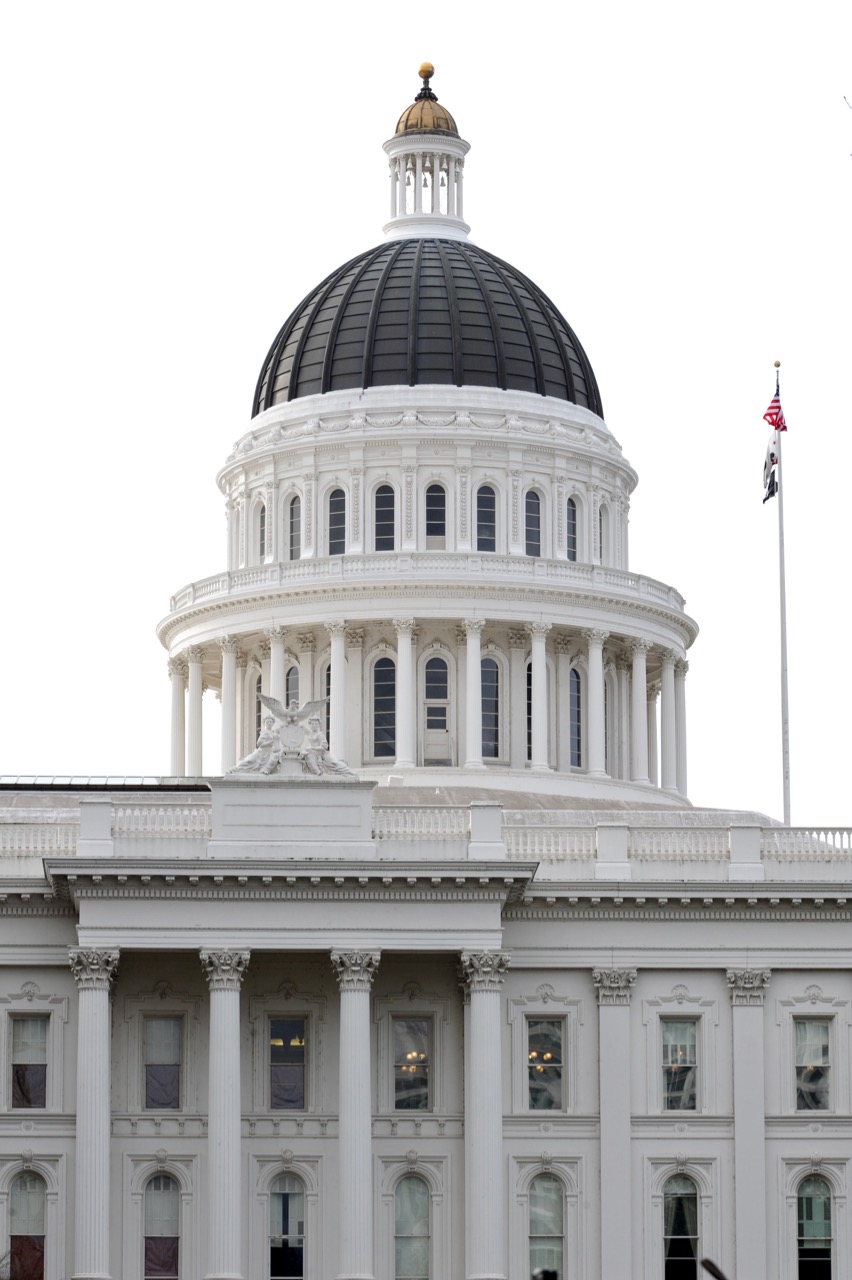
California State Assembly Chamber. (Photo: Kevin Sanders for California Globe)
How Complicated Can Bill Drafting Become?
One of the difficult areas of drafting amendments includes ‘double jointing amendments’
By Chris Micheli, September 10, 2022 7:28 am
In reviewing hundreds of the bills that have reached Governor Newsom’s Desk during the 2022 Legislative Session, several measures have complicated and lengthy provisions. One of the difficult areas of drafting amendments includes “double jointing amendments.” These amendments to a bill provide that the amended bill does not override (or “chapter out”) the provisions of another bill, where both bills propose to amend the same code section of law.
The problem of “chaptering out” is described as follows by the Office of Legislative Counsel: “When, during a calendar year, two or more bills amend the same section of law and more than one of those bills becomes law, the bill enacted last (and therefore given a higher chapter number) becomes law and prevails over the bill or bills previously enacted “
Drafting double-jointing amendments can become more complete based upon how many other bills amend the same code section. The following bill had 12 different double-jointing amendments, which is one of the highest I have seen:
AB 1655, Jones-Sawyer. State holidays: Juneteenth.
Existing law designates specific days as holidays in this state. Existing law designates holidays on which community colleges and public schools are required to close, including days appointed by the President. Existing law entitles state employees, with specified exceptions, to be given time off with pay for specified holidays.
This bill would add June 19, known as “Juneteenth,” to the list of state holidays. The bill would specify that holidays created by federal legislation signed by the President are considered days appointed as holidays for the purposes of the above-described provisions requiring community colleges and public schools to close. The bill would authorize state employees to elect to take time off with pay in recognition of Juneteenth, as specified.
This bill would incorporate additional changes to Sections 45203, 79020, and 88203 of the Education Code proposed by AB 1801 to be operative only if this bill and AB 1801 are enacted and this bill is enacted last.
This bill would incorporate additional changes to Sections 6700, 19853, and 19853.1 of the Government Code proposed by AB 1801 and AB 2596 to be operative only if this bill and either or both AB 1801 and AB 2596 are enacted and this bill is enacted last.
SEC. 8.
Section 2.5 of this bill incorporates amendments to Section 45203 of the Education Code proposed by both this bill and Assembly Bill 1801. That section shall only become operative if (1) both bills are enacted and become effective on or before January 1, 2023, (2) each bill amends Section 45203 of the Education Code, and (3) this bill is enacted after Assembly Bill 1801, in which case Section 2 of this bill shall not become operative.
SEC. 9.
Section 3.5 of this bill incorporates amendments to Section 79020 of the Education Code proposed by both this bill and Assembly Bill 1801. That section shall only become operative if (1) both bills are enacted and become effective on or before January 1, 2023, (2) each bill amends Section 79020 of the Education Code, and (3) this bill is enacted after Assembly Bill 1801, in which case Section 3 of this bill shall not become operative.
SEC. 10.
Section 4.5 of this bill incorporates amendments to Section 88203 of the Education Code proposed by both this bill and Assembly Bill 1801. That section shall only become operative if (1) both bills are enacted and become effective on or before January 1, 2023, (2) each bill amends Section 88203 of the Education Code, and (3) this bill is enacted after Assembly Bill 1801, in which case Section 4 of this bill shall not become operative.
SEC. 11.
(a) Section 5.1 of this bill incorporates amendments to Section 6700 of the Government Code proposed by both this bill and Assembly Bill 1801. That section shall only become operative if (1) both bills are enacted and become effective on or before January 1, 2023, (2) each bill amends Section 6700 of the Government Code, and (3) Assembly Bill 2596 is not enacted or as enacted does not amend that section, and (4) this bill is enacted after Assembly Bill 1801, in which case Sections 5, 5.2, and 5.3 of this bill shall not become operative.
(b) Section 5.2 of this bill incorporates amendments to Section 6700 of the Government Code proposed by both this bill and Assembly Bill 2596. That section shall only become operative if (1) both bills are enacted and become effective on or before January 1, 2023, (2) each bill amends Section 6700 of the Government Code, (3) Assembly Bill 1801 is not enacted or as enacted does not amend that section, and (4) this bill is enacted after Assembly Bill 2596 in which case Sections 5, 5.1, and 5.3 of this bill shall not become operative.
(c) Section 5.3 of this bill incorporates amendments to Section 6700 of the Government Code proposed by this bill, Assembly Bill 1801, and Assembly Bill 2596. That section shall only become operative if (1) all three bills are enacted and become effective on or before January 1, 2023, (2) all three bills amend Section 6700 of the Government Code, and (3) this bill is enacted after Assembly Bill 1801 and Assembly Bill 2596, in which case Sections 5, 5.1, and 5.2 of this bill shall not become operative.
SEC. 12.
(a) Section 6.1 of this bill incorporates amendments to Section 19853 of the Government Code proposed by both this bill and Assembly Bill 1801. That section shall only become operative if (1) both bills are enacted and become effective on or before January 1, 2023, (2) each bill amends Section 19853 of the Government Code, and (3) Assembly Bill 2596 is not enacted or as enacted does not amend that section, and (4) this bill is enacted after Assembly Bill 1801, in which case Sections 6, 6.2, and 6.3 of this bill shall not become operative.
(b) Section 6.2 of this bill incorporates amendments to Section 19853 of the Government Code proposed by both this bill and Assembly Bill 2596. That section shall only become operative if (1) both bills are enacted and become effective on or before January 1, 2023, (2) each bill amends Section 19853 of the Government Code, (3) Assembly Bill 1801 is not enacted or as enacted does not amend that section, and (4) this bill is enacted after Assembly Bill 2596 in which case Sections 6, 6.1, and 6.3 of this bill shall not become operative.
(c) Section 6.3 of this bill incorporates amendments to Section 19853 of the Government Code proposed by this bill, Assembly Bill 1801, and Assembly Bill 2596. That section shall only become operative if (1) all three bills are enacted and become effective on or before January 1, 2023, (2) all three bills amend Section 19853 of the Government Code, and (3) this bill is enacted after Assembly Bill 1801 and Assembly Bill 2596, in which case Sections 6, 6.1, and 6.2 of this bill shall not become operative.
SEC. 13.
(a) Section 7.1 of this bill incorporates amendments to Section 19853.1 of the Government Code proposed by both this bill and Assembly Bill 1801. That section shall only become operative if (1) both bills are enacted and become effective on or before January 1, 2023, (2) each bill amends Section 19853.1 of the Government Code, and (3) Assembly Bill 2596 is not enacted or as enacted does not amend that section, and (4) this bill is enacted after Assembly Bill 1801, in which case Sections 7, 7.2, and 7.3 of this bill shall not become operative.
(b) Section 7.2 of this bill incorporates amendments to Section 19853.1 of the Government Code proposed by both this bill and Assembly Bill 2596. That section shall only become operative if (1) both bills are enacted and become effective on or before January 1, 2023, (2) each bill amends Section 19853.1 of the Government Code, (3) Assembly Bill 1901 is not enacted or as enacted does not amend that section, and (4) this bill is enacted after Assembly Bill 2596 in which case Sections 7, 7.1, and 7.3 of this bill shall not become operative.
(c) Section 7.3 of this bill incorporates amendments to Section 19853.1 of the Government Code proposed by this bill, Assembly Bill 1801, and Assembly Bill 2596. That section shall only become operative if (1) all three bills are enacted and become effective on or before January 1, 2023, (2) all three bills amend Section 19853.1 of the Government Code, and (3) this bill is enacted after Assembly Bill 1801 and Assembly Bill 2596, in which case Sections 7, 7.1, and 7.2 of this bill shall not become operative.
Drafting one or two double-jointing amendments can be difficult in order to ensure that two or more bills do not chapter each other out. But to draft 12 of these amendments requires keeping quite a few provisions in mind and one mistake can result in chaptering out another a bill’s provisions.
- Duties of Law Enforcement in Emergency Protective Orders - July 12, 2025
- Automatic Repeal of State Agency Reports - July 11, 2025
- Confidential Marriages in California - July 10, 2025








Here is a “complication”: AB 1663 and AB 1860 are STILL in the Assembly’s “Enrollment Office” (though the legislature went into “recess” 10 days ago!). BOTH BILLS ARE ENROLLED! How come they are NOT “presented to the Governor” yet? Did they get forgotten about? Left behind?